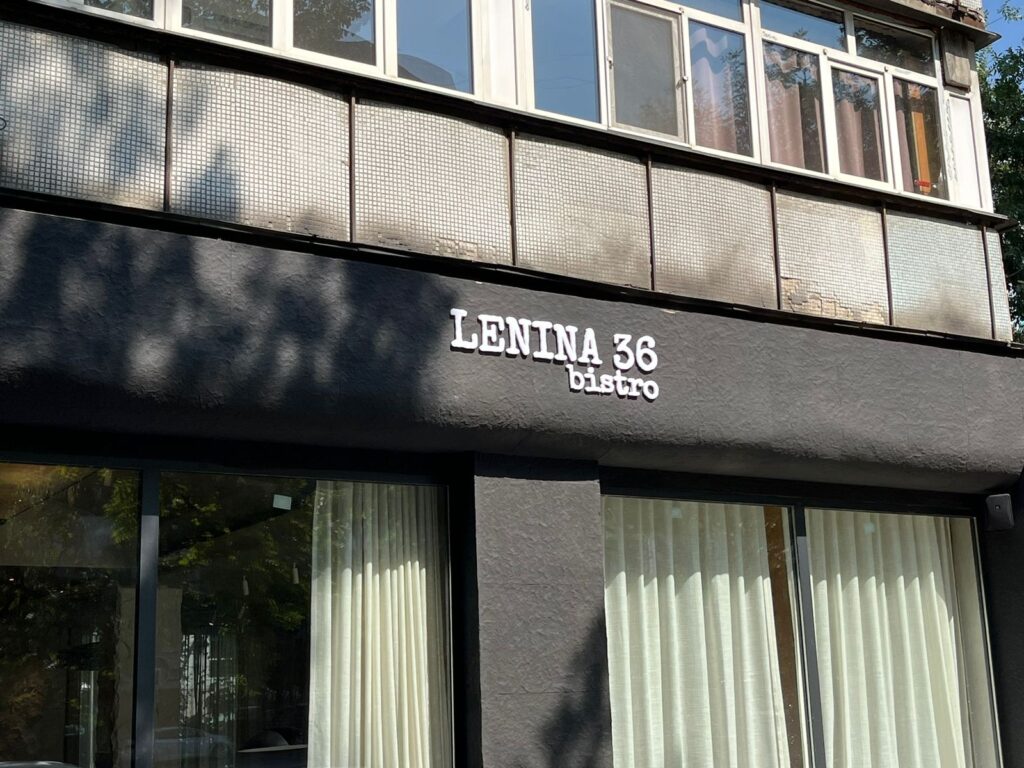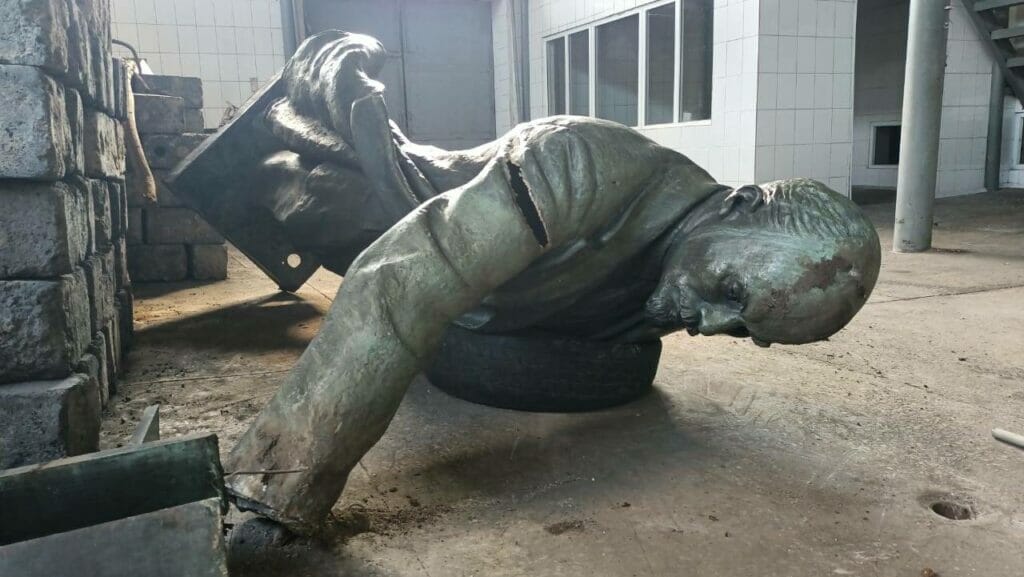
Using Vladimir Lenin’s image and name in business branding is a high-risk strategy with polarizing appeal, one that can either attract a niche market or provoke significant backlash.
Whether Lenin serves as an effective brand for businesses tapping into «communist nostalgia» or «communist chic,» trends seen in some post-communist countries and certain Western subcultures, largely depends on the target audience and cultural context.
Not just a name
In Almaty, Kazakhstan’s largest city, a café-bistro called Lenina 36 (named for its address at the former Lenin Avenue) is drawing heavy criticism online before it has even opened its doors. The controversy stems from the establishment’s name, which references Vladimir Lenin, a figure many in Kazakhstan view as a symbol of Soviet oppression.

«A new place is opening on Dostyk 36, the street’s current name. It’s called Lenina 36. Unfortunate name, I believe. Someone doesn’t realize Lenin has long since moved out of this avenue,» posted Threads user erdentakenov.
His post quickly went viral, sparking more than a thousand comments and splitting Kazakh social media into opposing camps.
Some argued it is inappropriate in Kazakhstan to name a business after Lenin, the Soviet revolutionary and Bolshevik leader, citing his association with authoritarianism and colonialism.
Soviet nostalgia
Others countered that the street itself was once called Lenin Avenue, and many longtime Almaty residents still use its former name out of habit or sentimentality.
Still, some believe Soviet nostalgia has worn out its welcome.
«I’m a native of Almaty, and I believe street names are changed for a reason. They should be called by their new names. Or is your pride in ‘being a native’ tied to clinging to childhood memories? Almaty seems to have this odd Soviet nostalgia,» wrote one user under the handle assemkulova.
Another commenter added:
«Lenin is a symbol of imperialism, authoritarianism and colonialism. Using his name, especially now, is either a provocation or historical ignorance. He’s not a neutral figure for this country.»
Call for cancellation
The debate has moved beyond social media and onto 2gis.kz, a digital maps and business directory service, where users have flooded the yet-to-open café with negative reviews and urged the owners to change the name.
Others, however, have defended the business, calling on people not to «sink someone else’s business over made-up reasons.»
While such branding may generate buzz and attract a specific, often younger or alternative, clientele, the recent backlash and calls for a boycott highlight the risk. Lenin’s negative historical associations can easily alienate a broader audience and trigger public relations crises.
Heeding public outcry, the café’s owners announced they would drop the Lenin-inspired name, stressing they never intended to send a political message. According to the bistro’s management, the name Lenina 36 was meant to evoke the architectural and cultural heritage of old Almaty.
However, they acknowledged that perceptions vary, and that the name had stirred negative emotions for some.
Goodbye Lenin
This recent branding backlash echoes the broader de-Sovietization efforts, reflected in the removal or relocation of Lenin monuments across post-Soviet countries. Some see these monuments as relics of an outdated ideology that should be dismantled, while others view them as part of historical heritage.
According to the Leninstatues.ru portal, a digital archive of Lenin statues across the former Soviet Union, a total of 14,290 Lenin monuments had been erected in the USSR by 1991. Of those, 7,194 are still standing today.

A 2021 study by Kazakh researcher Aruzhan Meirkhanova found that more than 300 Lenin statues have been demolished in Kazakhstan since the country gained independence in 1991. In addition to dismantling, Kazakhstani authorities have often employed a strategy of «displacement and replacement.» By relocating Lenin statues from central locations to less prominent areas, officials have diminished their symbolic significance while freeing up public space for new monuments.


